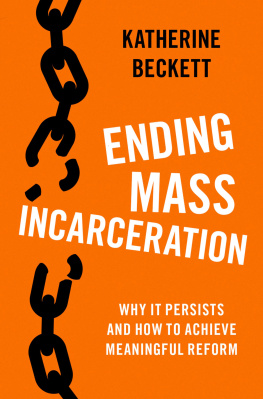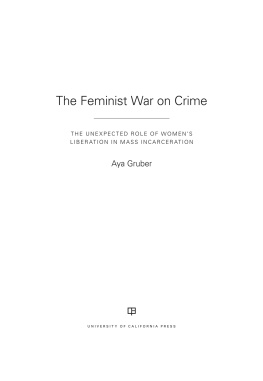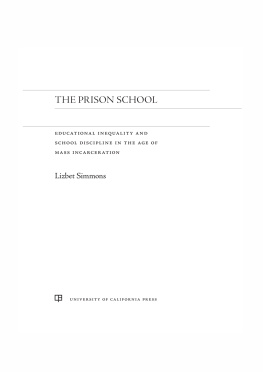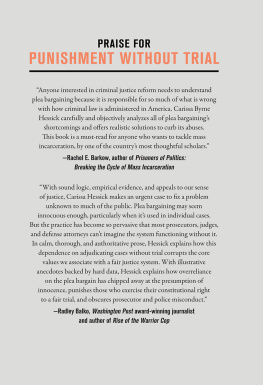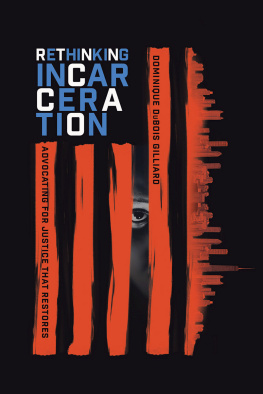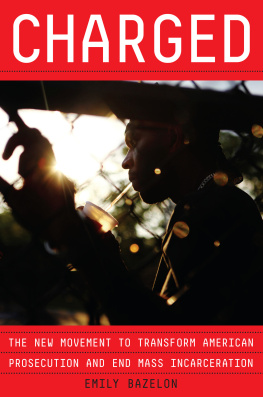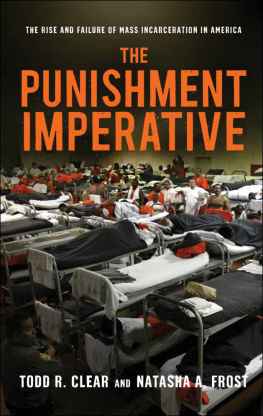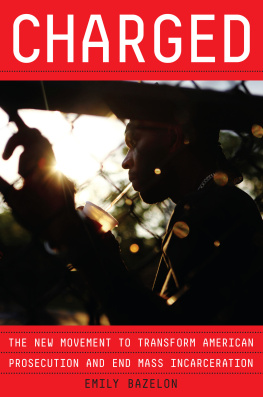Ending Mass Incarceration
Recent Titles in
STUDIES IN CRIME AND PUBLIC POLICY
Michael Tonry, General Editor
Doing Justice, Preventing Crime
Michael Tonry
The Partisan Politics of Law and Order
Georg Wenzelburger
Of One-eyed and Toothless Miscreants
Making the Punishment Fit the Crime?
Michael Tonry
Sentencing Fragments
Penal Reform in America, 19752025
Michael Tonry
Unwanted
Muslim Immigrants, Dignity, and Drug Dealing
Sandra M. Bucerius
Living in Infamy
Felon Disfranchisement and the History of American Citizenship
Pippa Holloway
Children of the Prison Boom
Mass Incarceration and the Future of American Inequality
Sara Wakefield and Christopher Wildeman
The City That Became Safe
New Yorks Lessons for Urban Crime and its Control
Franklin E. Zimring
The Toughest Beat
Politics, Punishment, and the Prison Officers Union in California
Joshua Page
Punishing Race
A Continuing American Dilemma
Michael Tonry
Policing Problem Places
Crime Hot Spots and Effective Prevention
Anthony A. Braga and David Weisburd
The Policing Web
Jean-Paul Brodeur

Oxford University Press is a department of the University of Oxford. It furthers the Universitys objective of excellence in research, scholarship, and education by publishing worldwide. Oxford is a registered trade mark of Oxford University Press in the UK and certain other countries.
Published in the United States of America by Oxford University Press
198 Madison Avenue, New York, NY 10016, United States of America.
Oxford University Press 2021
All rights reserved. No part of this publication may be reproduced, stored in a retrieval system, or transmitted, in any form or by any means, without the prior permission in writing of Oxford University Press, or as expressly permitted by law, by license, or under terms agreed with the appropriate reproduction rights organization. Inquiries concerning reproduction outside the scope of the above should be sent to the Rights Department, Oxford University Press, at the address above.
You must not circulate this work in any other form and you must impose this same condition on any acquirer.
CIP data is on file at the Library of Congress
ISBN 9780197536575
eISBN 9780197536599
DOI: 10.1093/oso/9780197536575.001.0001
For Jesse and AnnaRose, and the future you enable me to believe is possible
Contents
This book covers topics I began working on over a decade ago. I have accumulated many debts along the way. To the men and women at the Washington State Reformatory: you teach, by example, the value and meaning of redemption, and I am deeply grateful for the opportunity to know and work alongside you. To those of you who shared your personal stories: thank you. Your generosity, perseverance, and courage are deeply appreciated. Special thanks to Nick Hacheney, Devon Adams, Eugene Youngblood, and Vincent Sherill for connecting me to the Concerned Lifers Organization and the Black Prisoners Caucus at WSR and for welcoming me in those spaces. To the people, both inside and out, who run University Beyond Bars (UBB), much appreciation for creating the opportunity to teach and learn alongside such fantastic scholars, and for putting up with our collective overcrowding of the UBB office. Thanks also to Steve Herbert, whose work in and on prisons paved the way, whose questions, suggestions, and observations are invariably helpful, and whose ongoing support is deeply appreciated. The ideas and companionship of Megan Francis made many of my visits to prison all the richer.
Some of the research discussed in this book was made possible by Lisa Daugaards unending propensity to make trouble and her commitment to always be working toward a solution; thank you for inviting me on this journey and for sharing your brilliance along the way. Thanks also to Martina Kartman for enabling me to immerse myself in the world of restorative justice, for embodying the work, and for connecting me to so many others whose work and lives are inspirational to me. I am indebted to Heather Evans for saying yes, over and over again despite all the lost sleep, and for being such a wonderful collaborator, and to Joel for putting up with all of this. Exchanges with many other colleagues, including Monica Bell, Forrest Stuart, and Bruce Western, are always generative; I am especially grateful for Bruces comprehensive feedback and suggestions regarding an earlier version of this book. Craig Haneys work and example have also been an important source of inspiration. Thanks also to Michele Storms and Jaime Hawk for creating an opportunity to shine a light on the problem of long and life sentences in Washington State. Chelsea Moores unwavering belief that we can make a difference is an inspiration.
I have learned much about the challenge and promise of developing alternative ways of responding to substance use disorders and behavioral health issues from everyone at LEAD, Co-LEAD, and JustCARE, especially Jesse Benet and Tara Moss. I have also had the good fortune to work with a number of outstanding (present and former) graduate students, including Lindsey Beach, Marco Brydolf-Horwitz, Emily Knaphus-Soran, and Anna Reosti, who have allowed me to draw on our coauthored work here. I also appreciate the contributions of other current graduate students, especially Devin Collins, Allison Goldberg, and Aliyah Turner, whose work on alternative ways of responding to unsheltered homelessness and behavioral health has been so illuminating. I am thankful for the example of my colleagues in the departments of Law, Societies and Justice and Sociology, especially Angelina Godoy, who conduct research that addresses pressing human rights concerns and gives voice to those who are affected by them. And I am grateful for the support of Michael Tonry, Meredith Keefer, and others at Oxford University Press.
Last but by no means least, I am thankful for the generous support of the Miyamoto family, which has made much of this work possible, and for my colleagues at the University of Washington who value hands-on, publicly engaged, and problem-solving scholarship. Some of the research presented here was funded by the National Science Foundations Law and Social Sciences program (#1456180), the Public Defender Association, The Ford Foundation, the University of Washington West Coast Poverty Center, the ACLU of Washington, and Laurie Black and Stafford Mays, whose generosity is deeply appreciated.
The events of 2020 have made it abundantly clear that public safety is inextricably bound up with health and welfare. Yet this capacious understanding of public safety is at odds with popular usage of the term. For decades, conservative political actors have argued that there is just one significant threat to public safetyinterpersonal violenceand that the restoration of tough criminal penalties was the (only) appropriate response to this problem. This emphasis intensified in the 1960s and 1970s, as conservatives argued that government responsibility for public safety required nothing more than a muscular state response to so-called street crime. As many observers have pointed out, these calls for law and order treated protest against racial inequality as a form of violence and were part of an effort to discredit the civil and welfare rights movements, just as President Donald Trumps donning of the law-and-order mantle in the summer of 2020 was a clear rejoinder to the Black Lives Matter movement.

